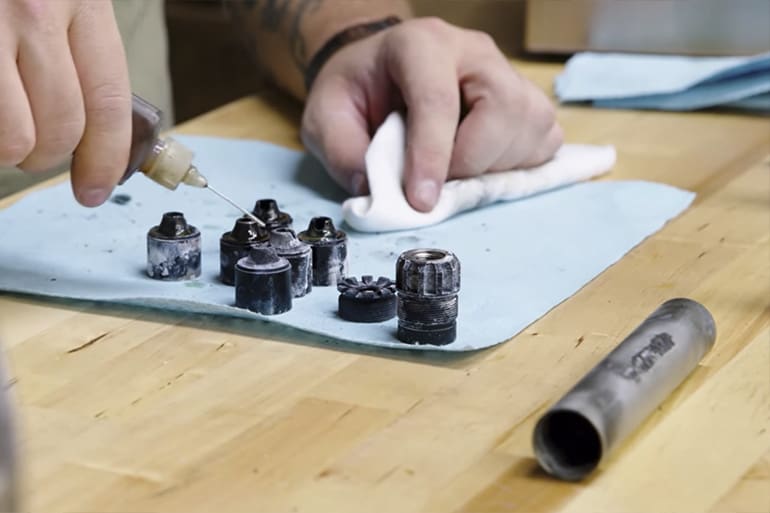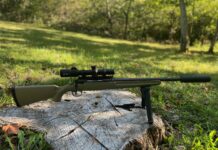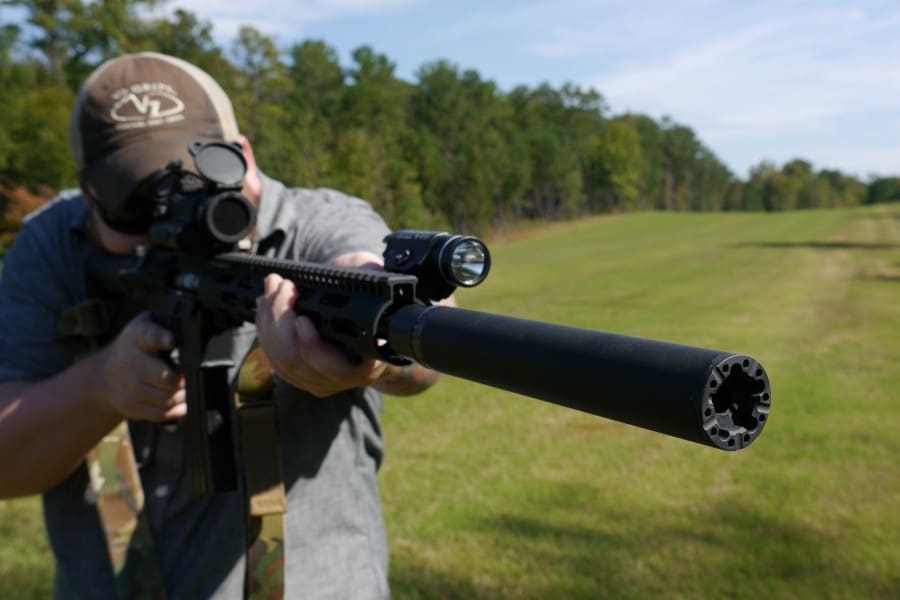https://youtu.be/b3nUP9E1a8k
Silencer Shop partnered up with SilencerCo to bring you an exclusive video tutorial on how to clean your suppressor. You’ll see SiCo’s Dewie Vieira and Josh “Beaver” Graham give you the dirty details on various ways to clean your silencer.
Dewie and Beaver will be diving into rimfire versus centerfire (and how their dirt buildup differs), various cleaning methods, what to look for during the cleaning process, and requirements for cleaning a suppressor.
As Dewie and Beaver state, it’s always best to consult with your manufacturer’s instructional guide on how to clean their specific silencers. Covering ultrasonic cleaning, wet media tumbling, dry media tumbling, a brush and elbow grease, the dip, and the soda blaster, watch to see which methods keep SilencerCo suppressors squeaky clean and ready for the range.





So putting a few drops of kerosene in, swishing it around, then shooting a round thru it doesn’t “blow it out” ?!
/sarc off/
I wonder if it would make it diesel? I used a couple drops of lube in an airgun and it did that for a few shots. Per the manual it was safe to have it happen but wow did it make it louder.
How to clean the worlds most expensive pipe. Sorry, proprietary, trademarked pipe.
“How to clean the worlds most expensive pipe.”
I see you’ve never bought a nebulizer for an RF-pumped mass spectrometer…
@Geoff
I thought your answer could have been a bit of flim-flam made up on the spur of the moment…a few minutes of research showed that I was wrong. Those are some expensive pieces of equipment! I tried to read the descriptions of the different types of spectrometers and discovered that I do not have the vocabulary or background to understand what I was reading.
Please accept my apology for doubting you.
Unscrew Fram oil filter from end of weapon and replace with new one, Done…
I always hammer punch a hole my oil filters on my blacked out Chrysler 300 aac so the oil can drain out when I change oil. That’s why I have them laying around, just haven’t had a chance to dispose of them yet.
I work on semi-trucks and we (sarc off) punch holes in the oil filters to drain them. They hold about 1/2 gallon of oil each and there’s 3 of them.
Watched the video…the marketing guy gets on your nerves with all of his “um’s”!
Wire brushing a dirty suppressor while watching TV is a terrible idea! They mention that it can get all over you, your chair / couch, etc but not a word about the hazard…that residue (especially from a rimfire can) is lead dust, lead particles and a lead / carbon sludge. The wire brush flings the lead around and forces some of it into an airborne suspension which you breathe…bad juju. At my annual physical this year my BLL (Blood Lead Level) was 13…part of that contamination was from improperly cleaning my suppressors. Carefully evaluating my lead exposure fail points I changed how I shoot and clean afterwards. Three months later my levels have dropped to 6 (still not great, but, much better).
A suggestion: get tested. Depending on your results, look at where / how you’re being exposed and research simple steps you can take to mitigate that exposure. Lead (including all the heavy metals – mercury, cadmium, arsenic, chromium, thallium, and lead) is not utilized in human biochemistry…any lead in you is poison (yea, I know someone is going to make the inevitable ballistically-introduced “lead in you” comment).
I have not changed how much I shoot…just changed how I protect myself from lead exposure. The same mitigation techniques work for those of you who may cast your own bullets using recovered range lead, work in electronics (soldering) and leaded glass art (cutting / soldering lead came).
Great advise, just curious how often you are shooting and cleaning firearms for this elevated exposure? Daily, weekly, monthly?
I try for twice a week. One solo trip to outdoor range and a once a week get together with some retired friends at an indoor range. Anywhere from 50 – 150 rounds per trip (these days I’m shooting more .22LR than centerfire). Mostly pistol / revolver…some rifle…MT hunting season just around the corner.
Thanks, that goes to show the dangers of lead exposure. I only get out about twice a month but I wash well, shoot outside, clean outside, and use gloves while cleaning. I was curious as i’ve never done the blood test.
I have heard aluminum .22lr suppressors can get nearly impossible to disassemble from gunk in the threads. Will using copper anti-size compound eliminate those problems?
Think I would use a silicone thread lube.
I’m just guessing, but I’d consider moly disulfide anti-seize paste on those alum threads. I’ve had good luck with it on alum. parts under less demanding conditions.
Did i miss it or did they not show the results of the soda blast? I am disappointed in not having before and after still shots of the different methods. However it was still good information.
Two words, ULTRASONIC CLEANER.
How does one clean a sealed silencer? SilencerCo’s Ospreys don’t come apart, and centerfire handgun rounds aren’t nearly as clean as centerfire rifle rounds.
Not a very good video.
Dip works the best hands down. Removes every trace of lead, and turns carbon into mud that can be just brushed off. But let it work until you see no more fizzing.
The dip solution should never be covered. Safely isolate it outdoors where kids/pets can’t get to it.
Comments are closed.